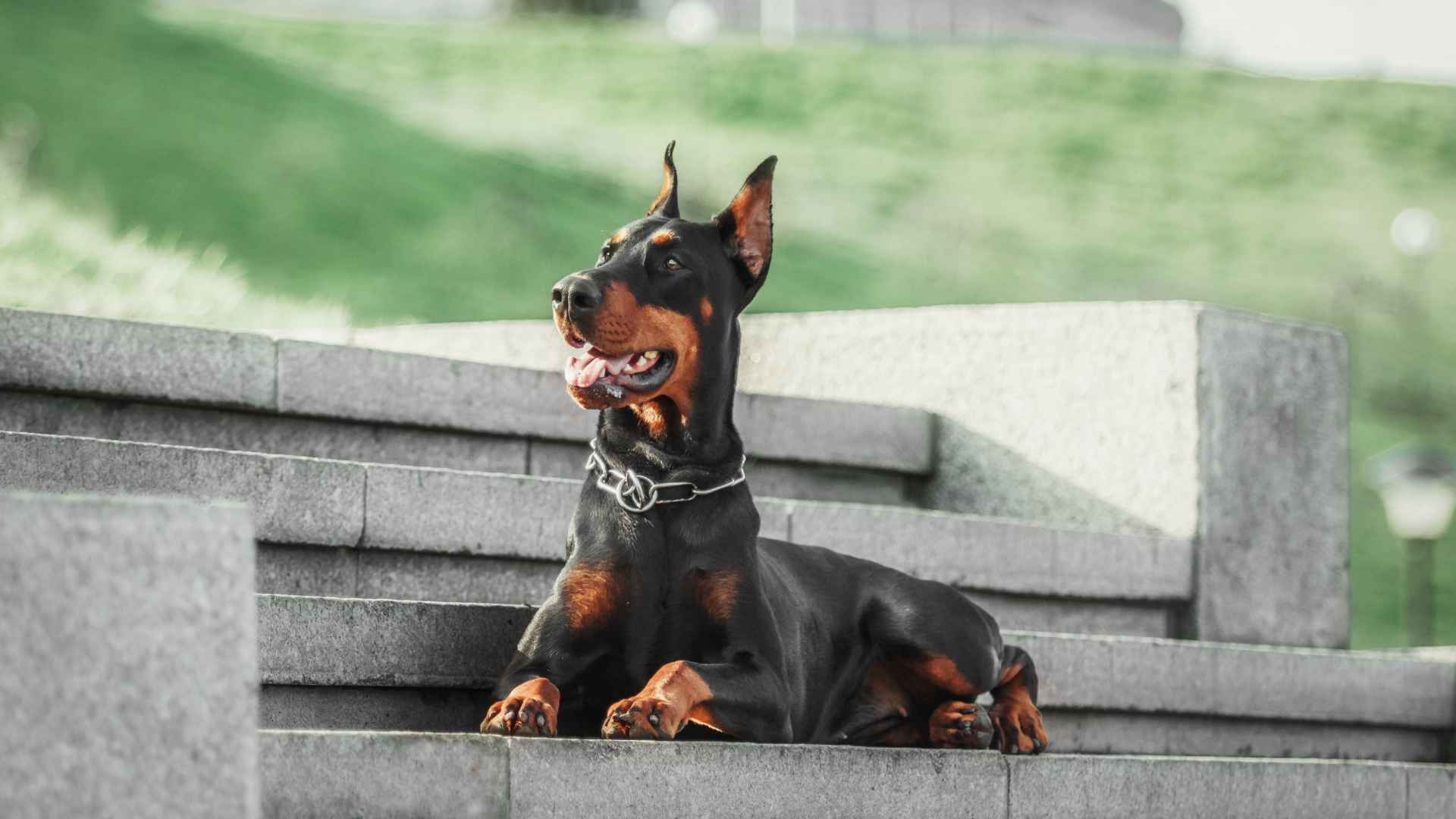Looking for the ideal guard dog to keep your home and family safe? The right canine protector isn’t just a security measure—it’s a loyal companion, a fearless guardian, and a devoted family member all in one! Some breeds have an unmatched instinct to protect, combining intelligence, strength, and a deep-rooted sense of loyalty.
From the powerful Rottweiler to the ever-alert Belgian Malinois, great guard dogs are naturally watchful, quick to react, and always ready to stand between their loved ones and danger. But choosing the perfect protector isn’t just about size or intimidation—it’s about temperament, training, and the ability to integrate into your lifestyle.
Whether you want a steadfast guardian like the Cane Corso or a playful yet protective Boxer, this guide covers the best breeds for home security. Let’s dive into the top guard dogs that will not only protect your home but also steal your heart!
Guard Dog Breeds For Residential Properties
1. Bullmastiff
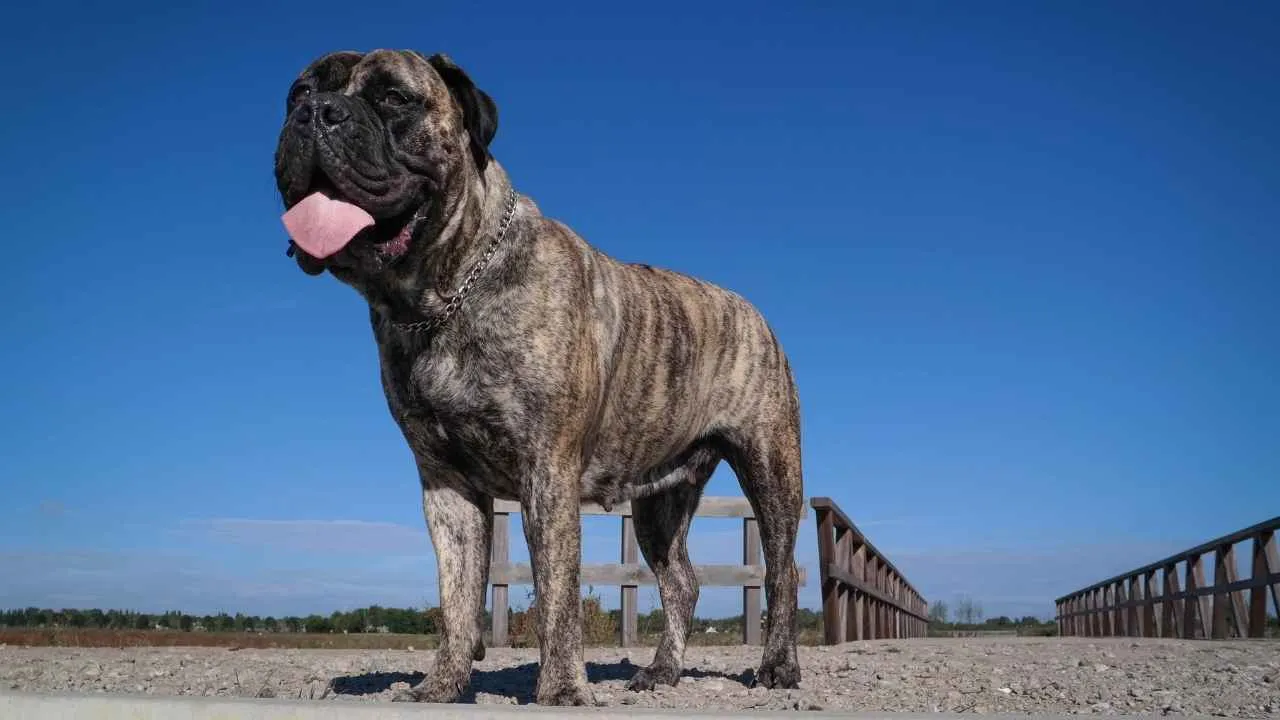
The Bullmastiff was originally bred in England to protect estates from poachers, combining the strength of a Mastiff with the agility of a Bulldog. They were trained to track and pin down trespassers rather than attack them outright, making them one of the most disciplined and reliable estate guard dogs of their time.
Bullmastiffs are naturally affectionate with their families. They form deep bonds with their owners and are known for their unwavering loyalty. They are low-maintenance in terms of exercise, making them suitable for households with moderate activity levels.
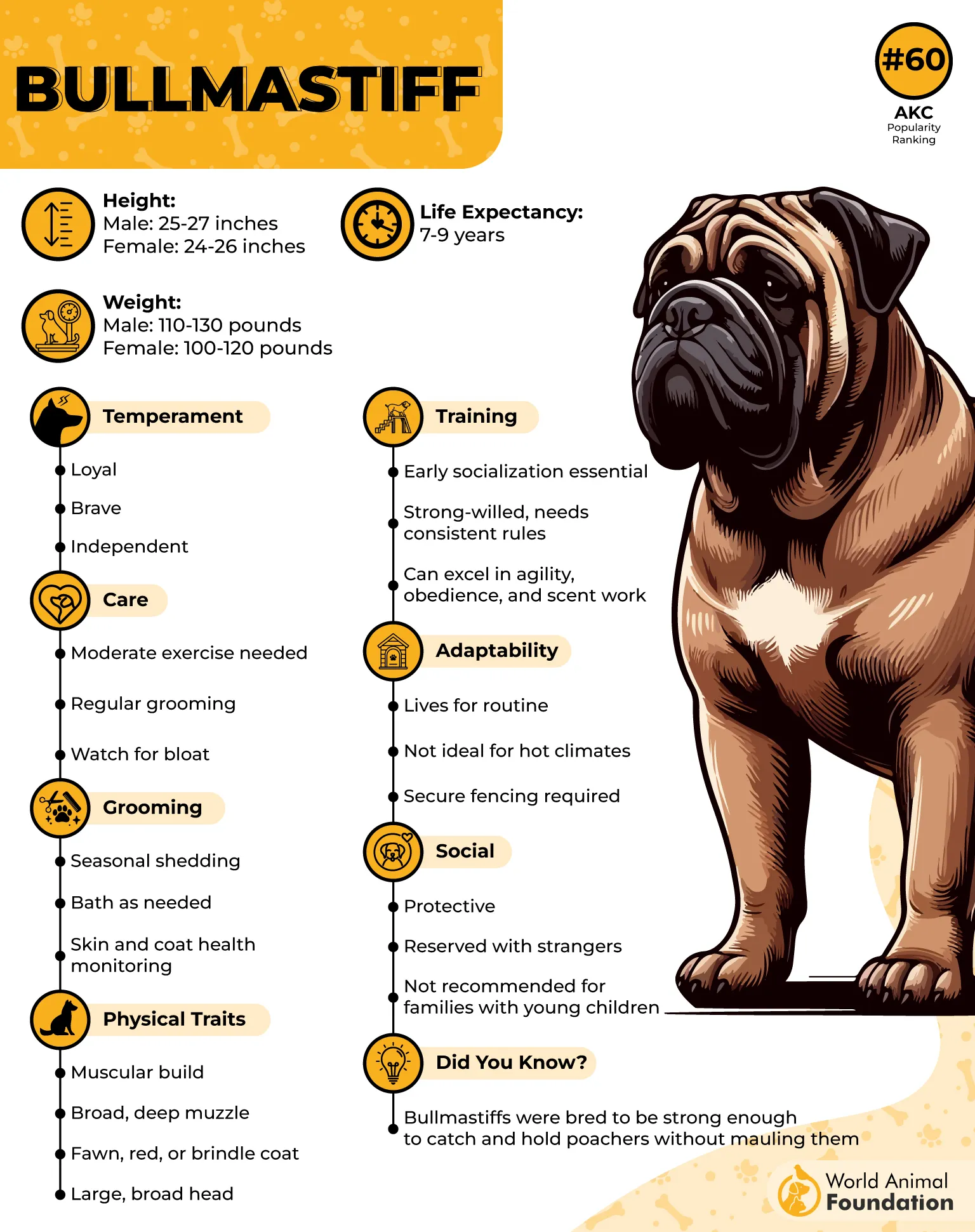
Their imposing size and muscular frame make them excellent deterrents. Their alert nature allows them to recognize potential threats instantly, yet they do not bark unnecessarily. Instead of displaying aggression, they rely on their sheer physicality and confidence to intimidate intruders. Early socialization is vital to ensure they remain calm and composed in all situations.
Bullmastiffs thrive in a structured environment where they receive consistent training and boundaries. Without firm leadership, they may develop stubborn tendencies. Regular, positive reinforcement training will help them distinguish between real threats and everyday encounters.
As a short-coated breed, grooming is simple—occasional brushing and routine care suffice. However, due to their size and predisposition to certain health issues, they require high-quality nutrition and veterinary check-ups to maintain optimal health.
2. Cane Corso
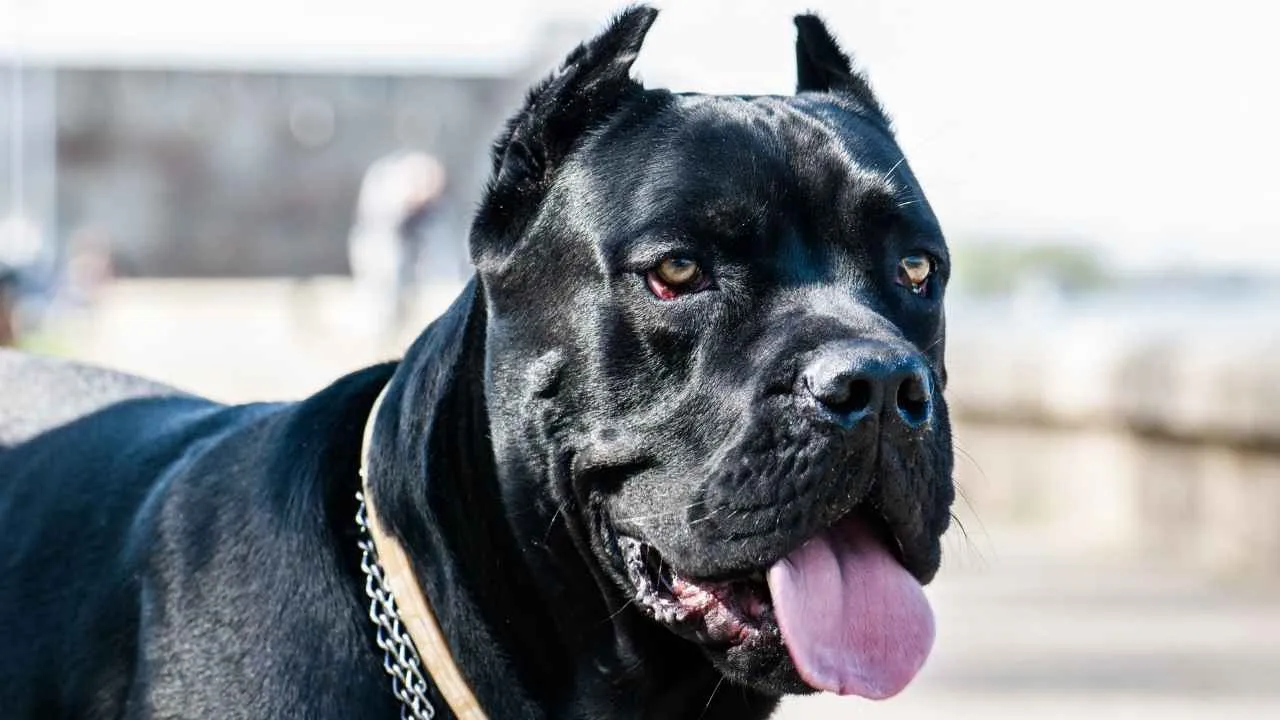
The Cane Corso is an ancient Italian breed that once guarded farms and accompanied warriors in battle. Known for their intense gaze and athletic build, they command respect and exude confidence—the qualities needed to protect properties. These dogs require experienced handlers who can provide firm yet fair training from an early age.
Cane Corsos are naturally reserved around strangers but affectionate with their families. They form strong protective bonds and will not hesitate to act if they perceive a threat. They assess situations quickly, making them one of the most capable guard dogs.
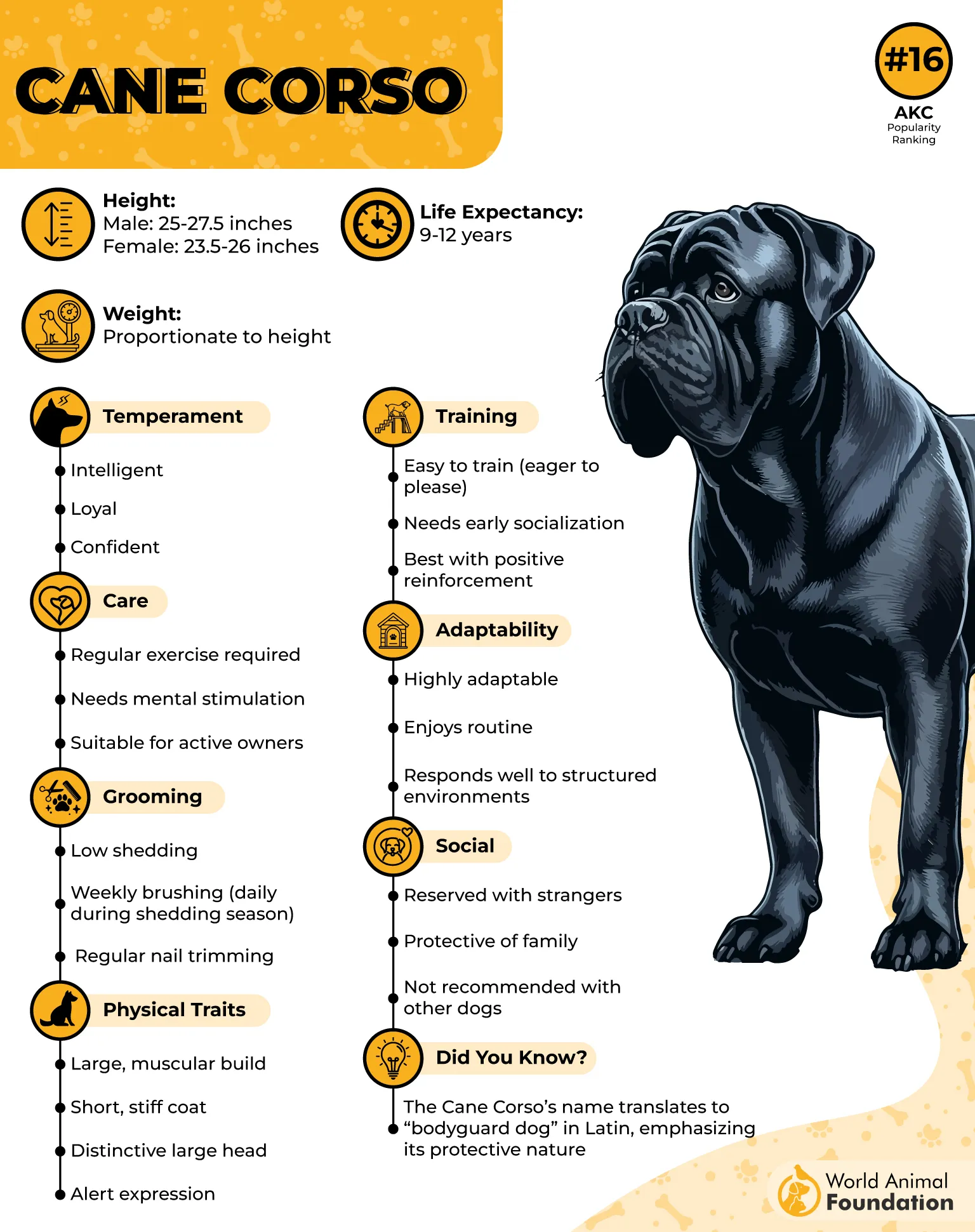
AKC states that their energy levels demand regular exercise and mental stimulation. Without proper outlets, they can become restless and destructive. Activities such as obedience training, agility work, and structured play help keep them engaged and well-behaved.
Cane Corsos are not excessively vocal, but their deep, resonant bark can be intimidating when necessary. They are best suited for homes with secure yards where they have space to patrol. Proper socialization from a young age ensures they remain confident yet composed in various settings.
Grooming is minimal due to their short coat, though occasional brushing helps reduce shedding. However, owners should monitor their diet closely, as Cane Corsos are prone to weight gain, which can impact their joint health.
3. German Shepherd
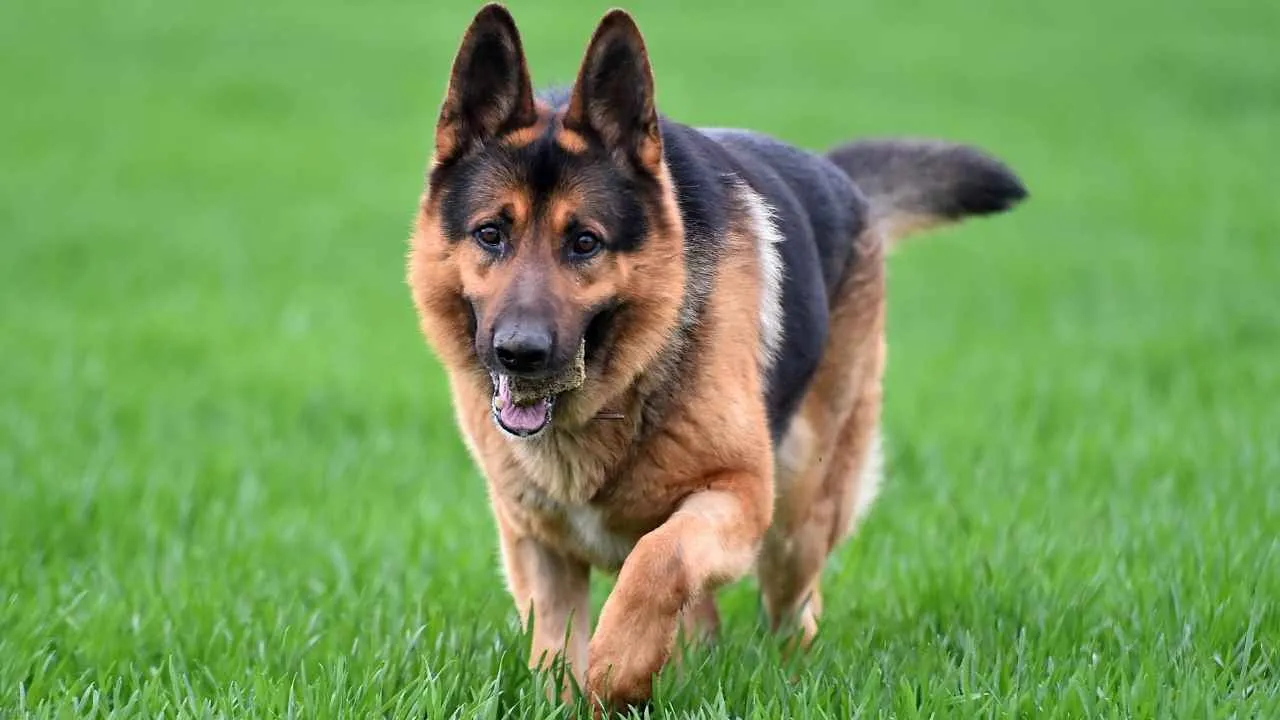
Highly intelligent and adaptable, the German Shepherd is one of the most recognized protection breeds worldwide. Their origins trace back to 19th-century Germany, where they were bred as herding and livestock guard dogs. Over time, their keen intelligence and trainability made them a top choice for police and military work.
German Shepherds are deeply loyal and protective, making them excellent family guardians. They can assess situations strategically, responding with controlled assertiveness rather than outright aggression.

Their high energy levels require daily exercise and mental challenges. Activities like obedience drills, agility courses, and scent work keep them engaged and prevent boredom-related behavioral issues. Without sufficient stimulation, they may develop destructive habits.
Shedding is moderate to high, requiring regular brushing to manage their thick double coat. While their grooming needs are more demanding than some short-haired breeds, they are otherwise relatively low-maintenance regarding health and care.
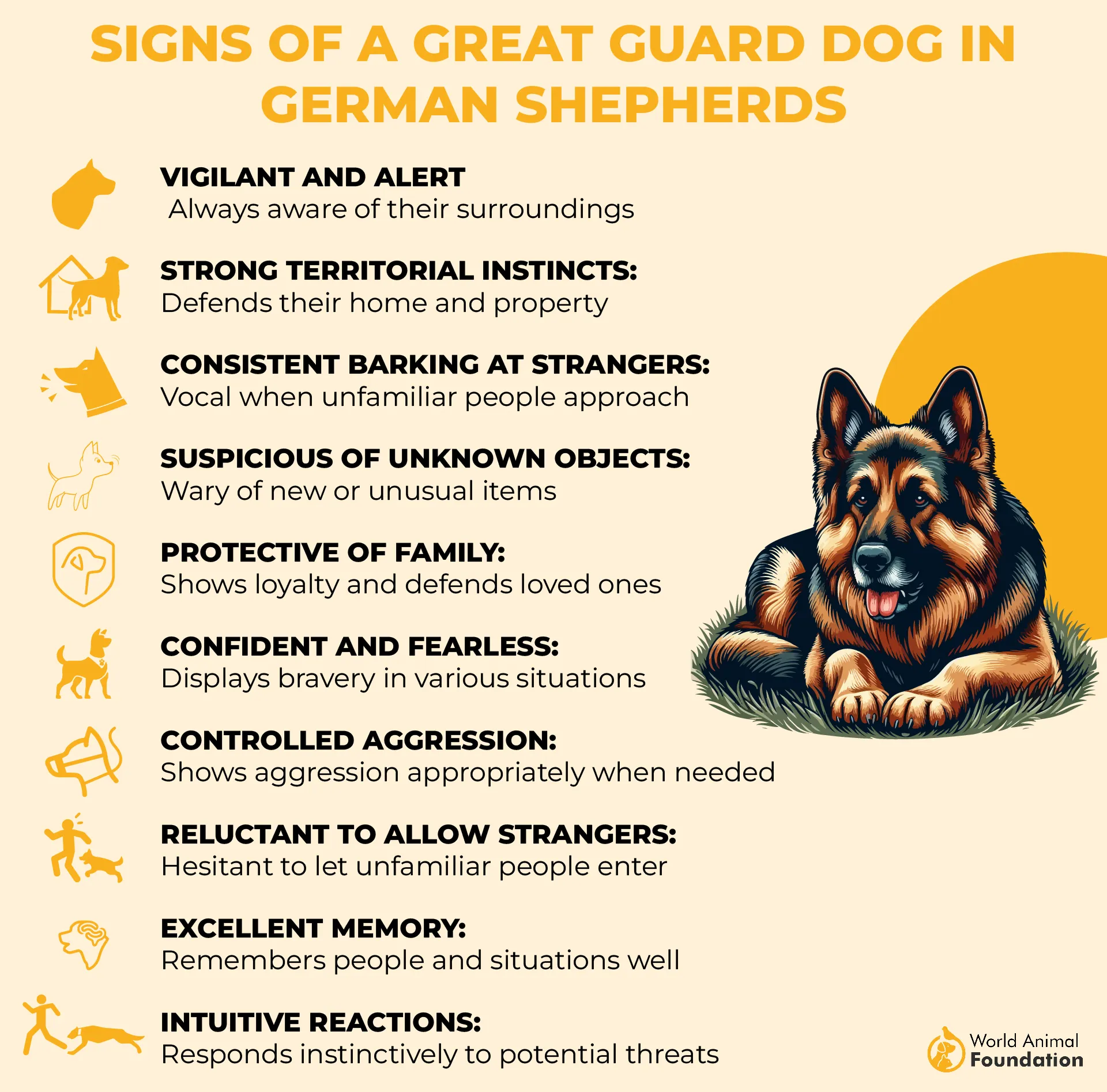
Proper socialization from an early age ensures that they remain well-balanced and confident. While naturally protective, they should be exposed to various environments and people to prevent over-guarding or nervous behavior in unfamiliar situations.
4. Giant Schnauzer
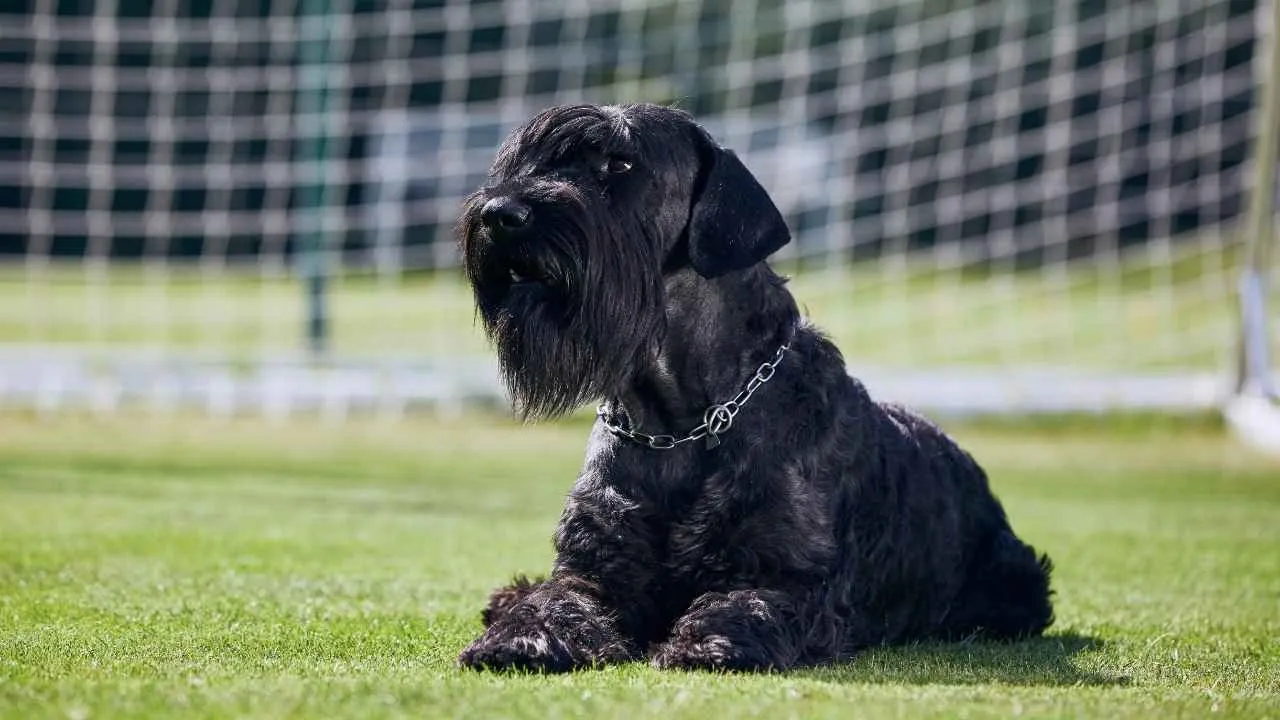
The Giant Schnauzer is an intelligent and fearless guardian bred in Germany for cattle driving and property protection. Their distinct beard and wiry coats give them a unique appearance, but their true strength lies in their sharp instincts and loyalty.
Giant Schnauzers form strong bonds with their families, often becoming highly attached to their owners. Their devotion makes them excellent watchdogs, always remaining alert to any potential intruders. Despite their protective instincts, they can be affectionate and playful with familiar faces.
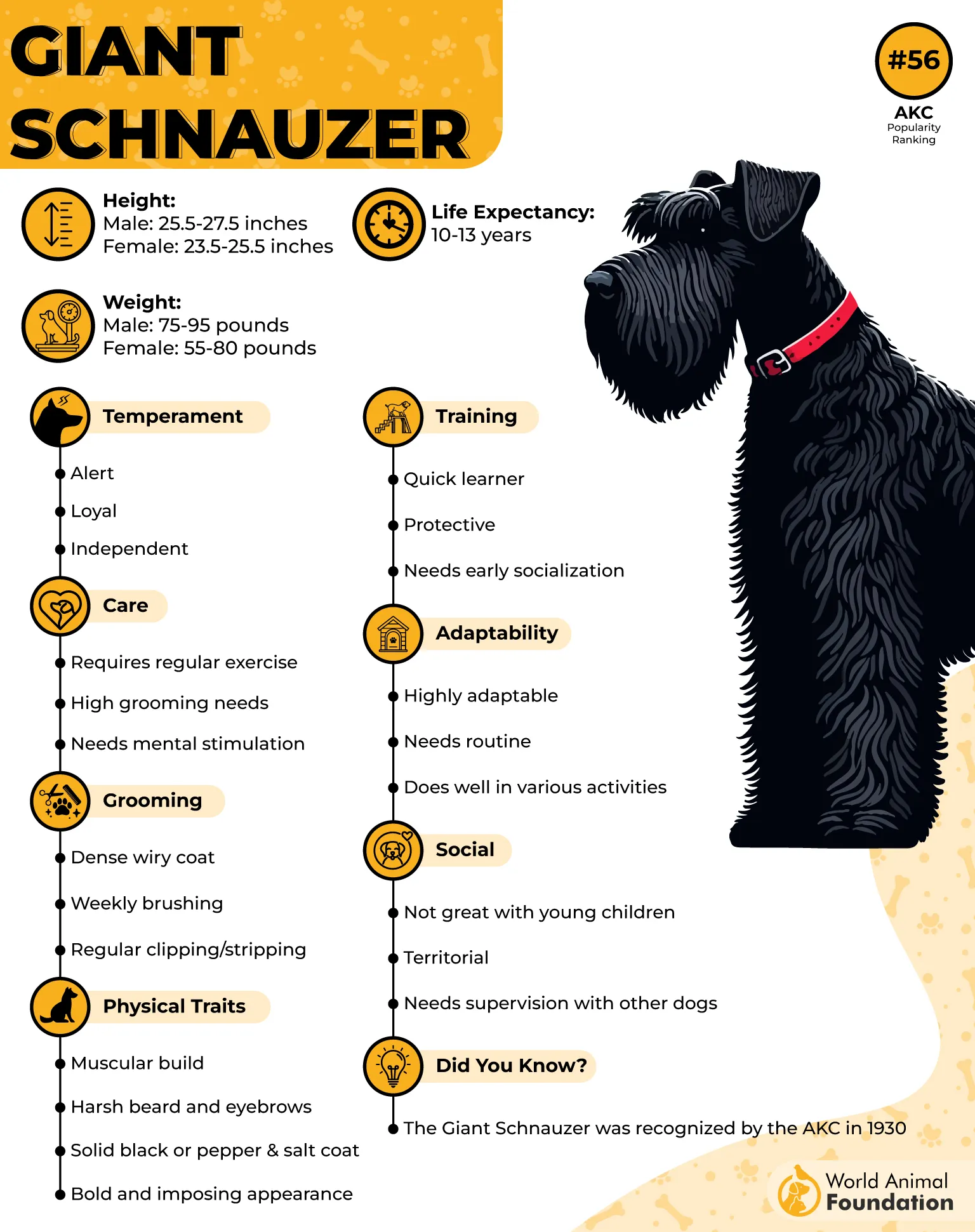
Their working-dog heritage means they require a job or structured training regimen. PetMD states that without proper mental stimulation, they may become restless or overly dominant. Advanced obedience training and interactive tasks help productively channel their energy.
Giant Schnauzers are naturally wary of strangers and take time to warm up to new people. Early exposure to different environments and controlled socialization ensure that they develop into well-rounded, confident dogs.
Grooming is a key aspect of their care. Their wiry coat requires regular brushing and occasional professional trimming to maintain its condition. Additionally, their beards need cleaning to prevent debris buildup.
5. Belgian Malinois
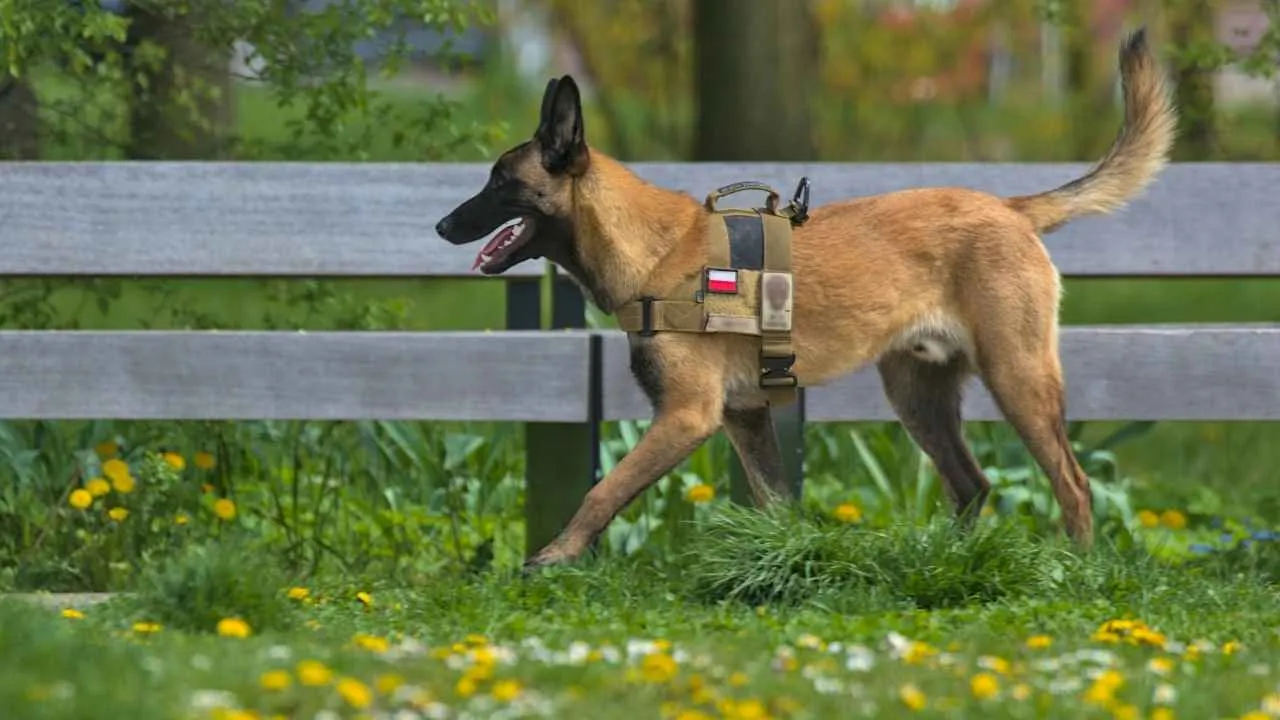
The Belgian Malinois is a lean, agile breed with a sharp mind and boundless energy. Bred for herding and later used in military and police work, they are known for their intelligence and exceptional work ethic. Due to these qualities, they prove to be very effective for guarding residential properties.
This breed thrives on structure and purpose. Owners must be prepared to provide daily physical exercise and training sessions. Without these, Malinois can develop destructive behaviors out of boredom and frustration.
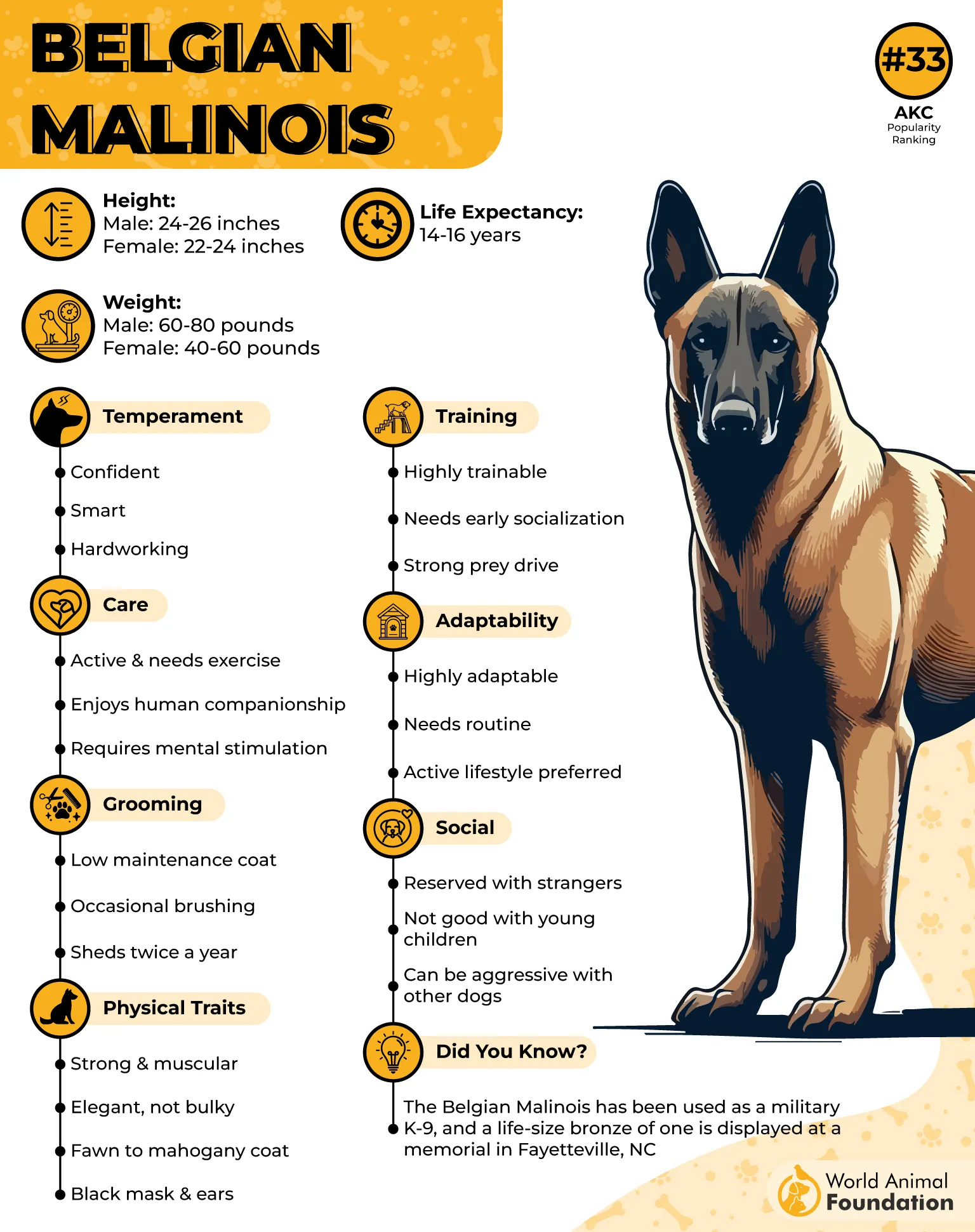
They form incredibly strong bonds with their handlers, often becoming one-person dogs. While they can be affectionate with families, they prefer having a clear leader. Their loyalty and devotion make them unparalleled protectors.
Because of their drive and intensity, Belgian Malinoiss are best suited for experienced dog owners who understand canine behavior. They need consistent guidance and should never be left without mental and physical engagement.
Their short coat is low-maintenance, requiring only occasional brushing. However, their high activity levels mean they need a nutrient-rich diet to support their muscles and endurance.
6. Doberman Pinscher
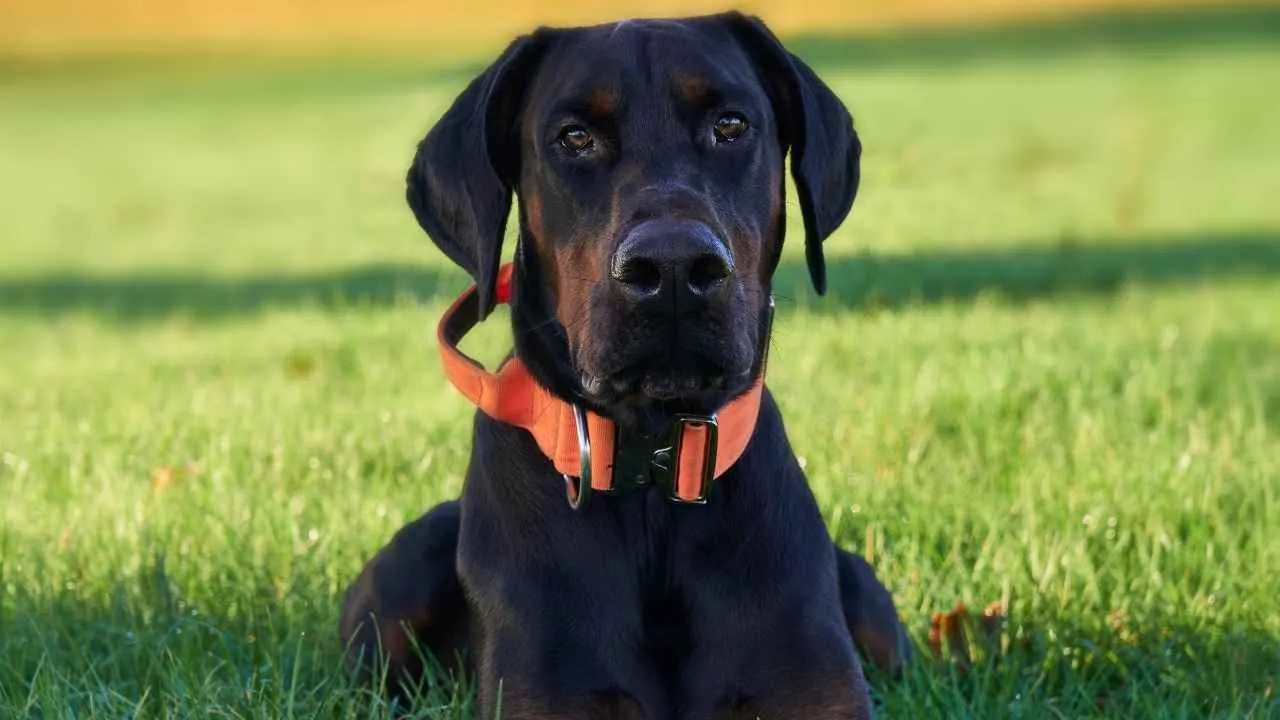
Sleek and powerful, the Doberman Pinscher was bred in Germany as a personal protection dog. With their athletic build and keen intelligence, they are among the most effective guardian breeds.
As per HillsPet, Dobermans are extremely loyal and form strong attachments to their families. They are natural watchdogs, often positioned near entry points to monitor their surroundings. Despite their fierce reputation, they are affectionate with their loved ones.
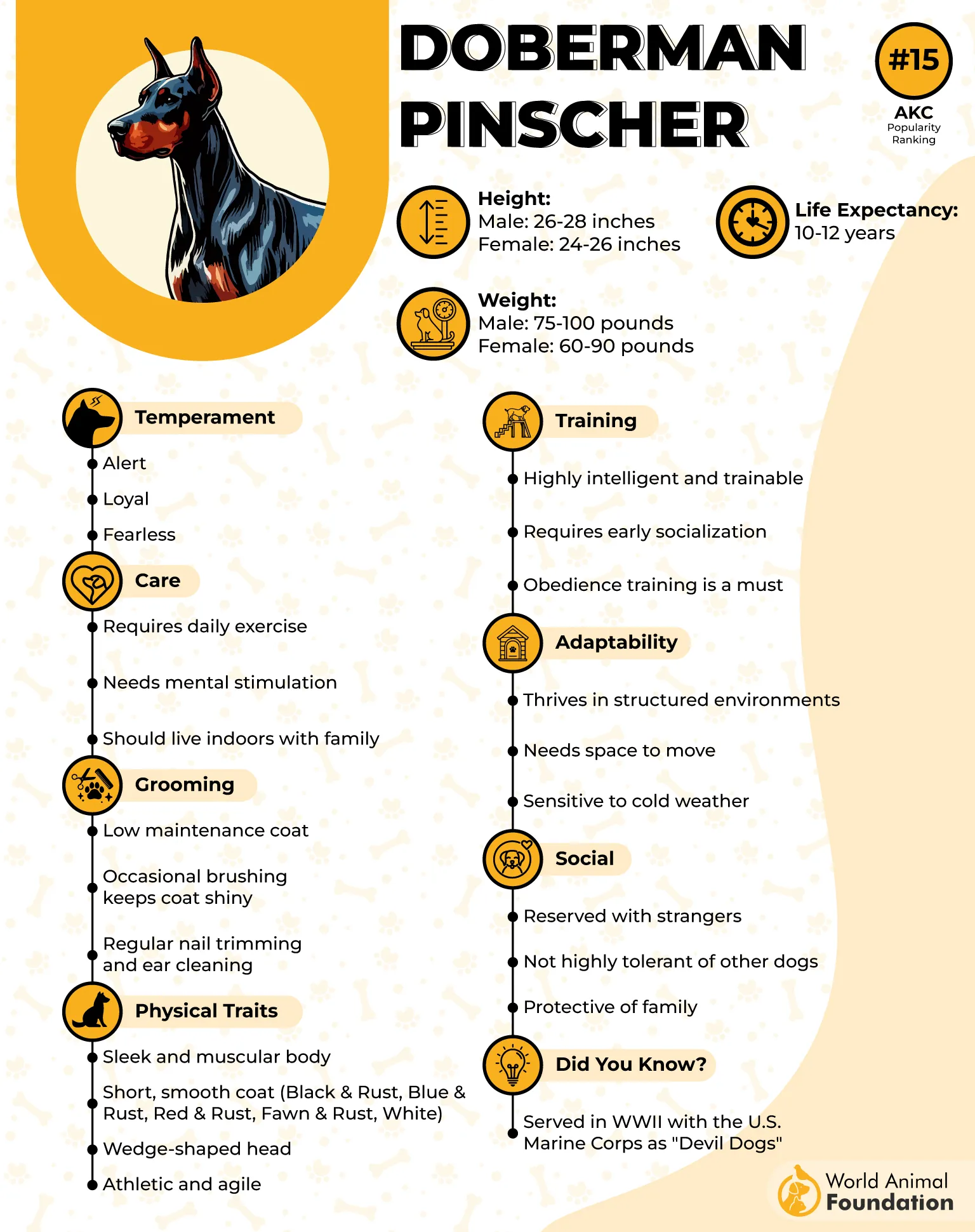
They require consistent training and socialization to prevent overprotective tendencies. A well-trained Doberman is confident, responsive, and capable of distinguishing threats from normal interactions.
Their short coat makes grooming effortless, though they require regular exercise to maintain their muscular physique. Activities such as running, fetch, and agility training keep them physically and mentally fit.
Dobermans are naturally vigilant, meaning they don’t need excessive encouragement to guard their home. Their presence alone is enough to deter most intruders, but their intelligence ensures they only react when necessary.
7. Rottweiler
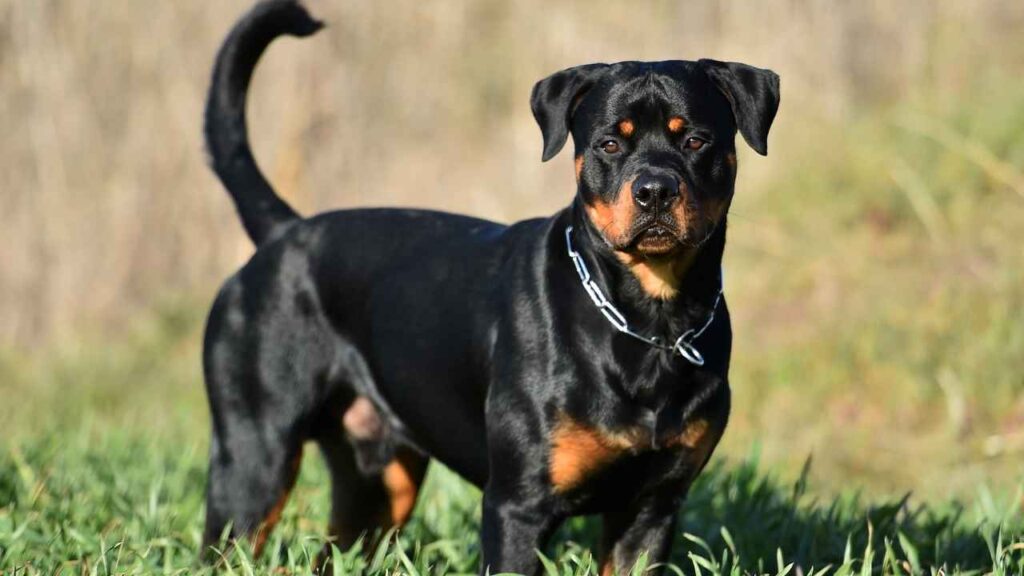
Rottweilers have a long history as guard dogs, dating back to the Roman Empire when they were used to herd cattle and protect livestock. Their power, endurance, and intelligence make them one of the best guard dog breeds for residential properties. They are naturally confident and self-assured, which helps them excel as protectors.
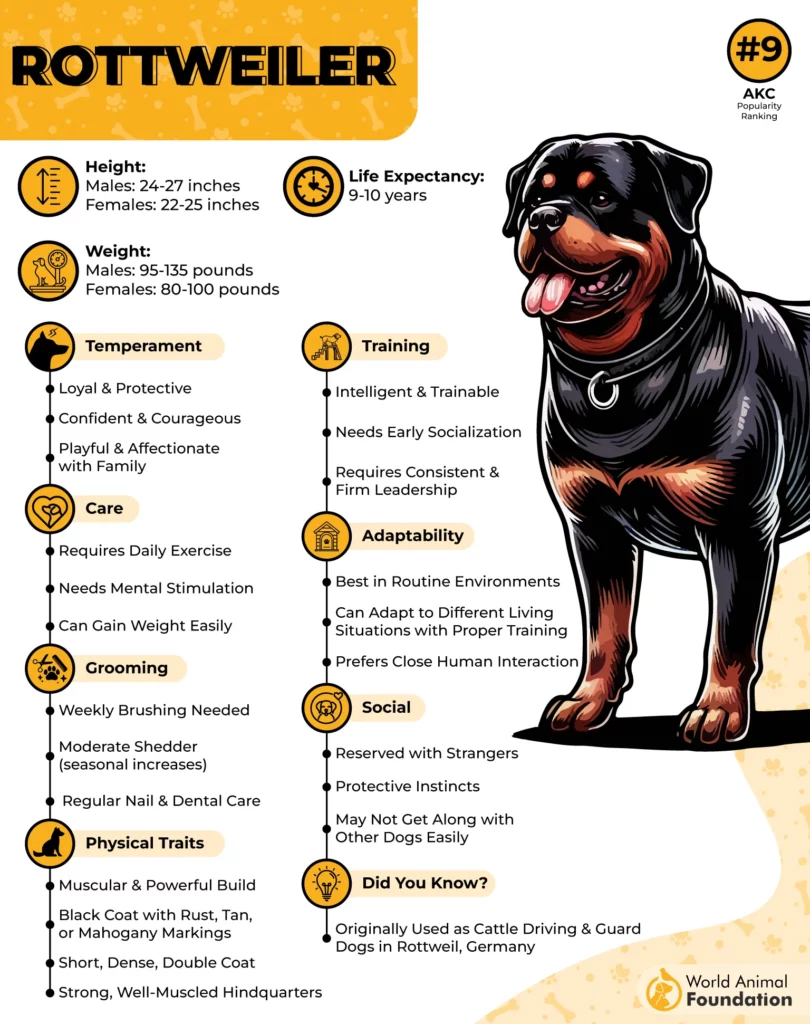
While Rottweilers may appear intimidating, they are deeply affectionate with their families. They form strong bonds with their owners and are known for their unwavering loyalty. However, they are naturally reserved with strangers, making early socialization critical to developing a well-balanced temperament.
These dogs require consistent leadership and training from an early age. Without proper guidance, they can become overly dominant or territorial. Clear boundaries, positive reinforcement, and structured training sessions help shape them into disciplined and obedient companions.
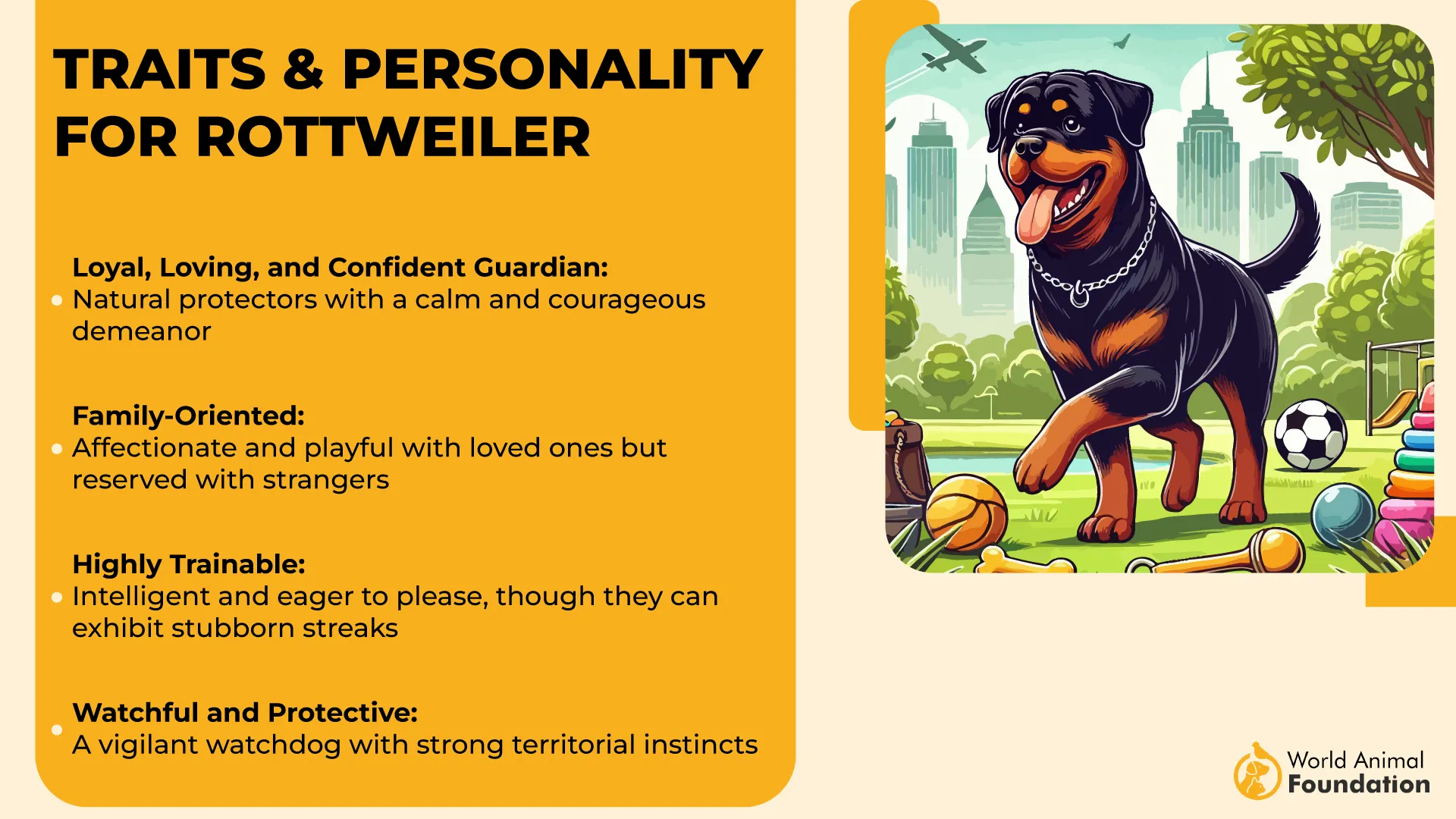
Rottweilers are highly intelligent and thrive on mental and physical stimulation. Regular exercise, interactive toys, and obedience work keep them engaged and prevent boredom-induced behaviors. Their muscular build requires activities such as running, weight pulling, or agility training to stay in top condition.
Their short, dense coat is easy to maintain, needing only occasional brushing to remove loose hair. However, due to their size and genetic predisposition, owners should be mindful of joint health and provide a balanced diet to support strong bones and muscles.
8. Boxer
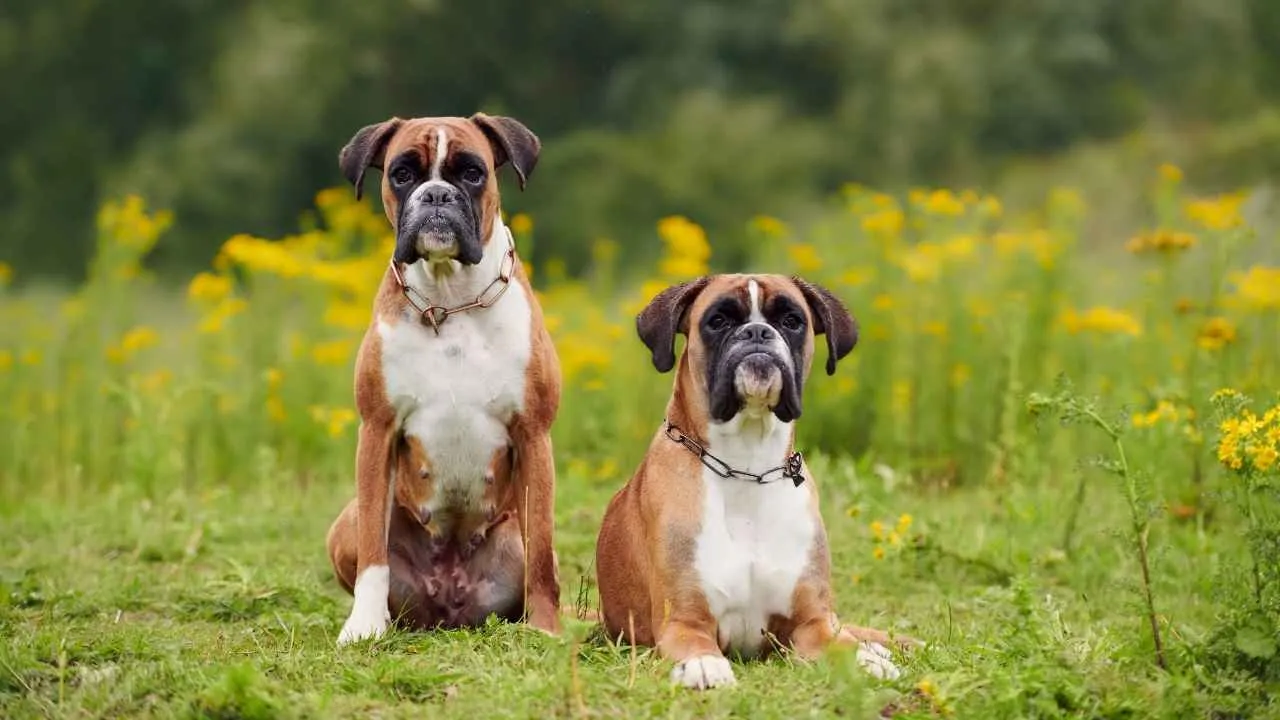
The Boxer is an energetic and fun-loving breed that also happens to be an excellent guard dog. Originally bred in Germany for hunting and protection, Boxers possess both a playful spirit and a protective instinct that makes them ideal family companions. Their athletic build and natural agility give them a powerful presence.
One of the most striking traits of the Boxer is their high intelligence and eagerness to please. They are quick learners and respond well to positive reinforcement-based training. However, their playful nature means training sessions should be engaging and interactive to keep their attention.
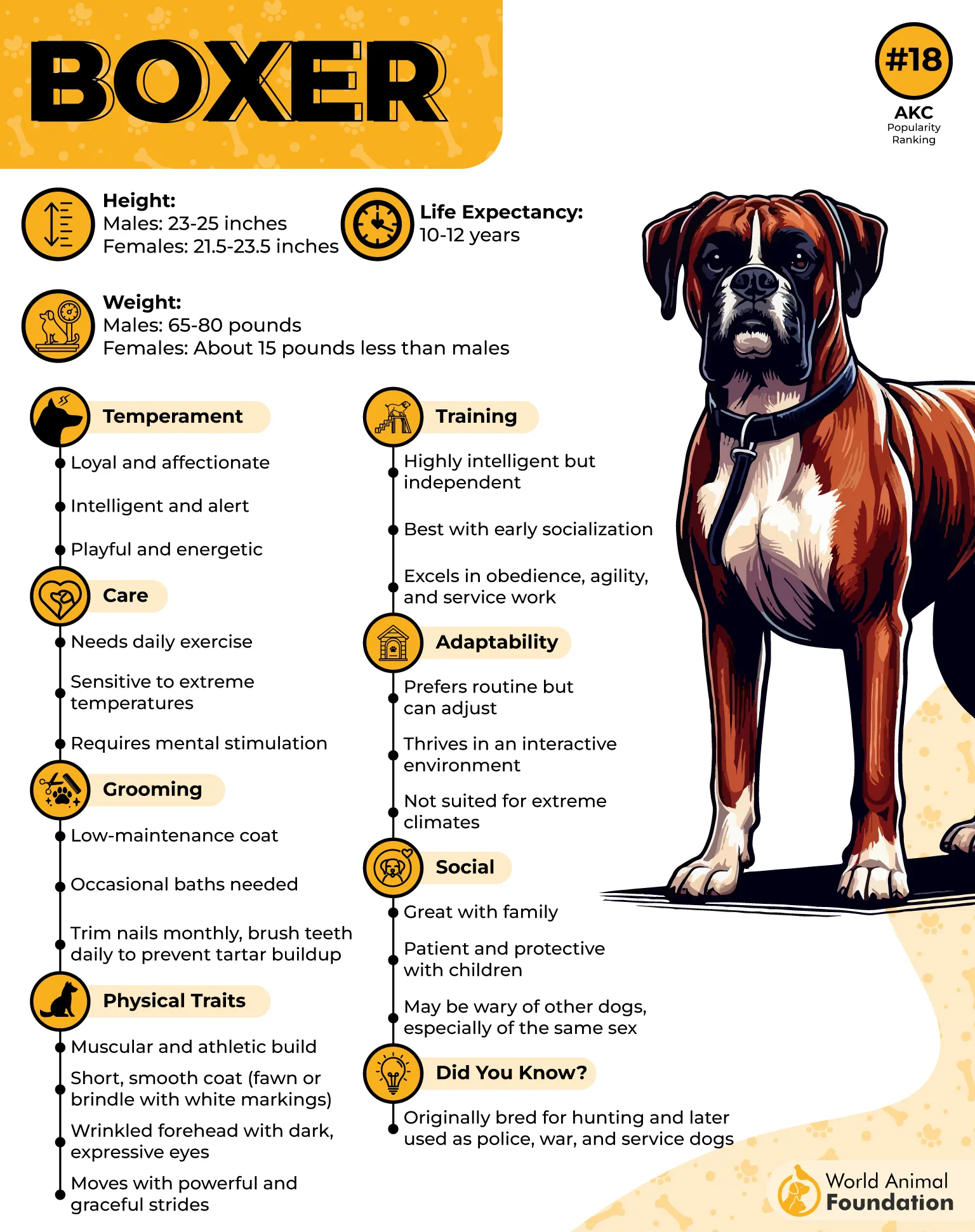
Boxers are highly alert and aware of their surroundings. They are known for their expressive faces and distinctive “boxing” behavior, where they use their front paws to playfully engage with people or other animals. Their alert nature makes them quick to respond to any unfamiliar activity around their home.
Despite their high energy, Boxers thrive in family settings and form strong bonds with children. They are protective but not overly aggressive, making them a great choice for households looking for a balance between companionship and security. Their love for human interaction means they should not be left alone for extended periods.
Grooming needs for Boxers are minimal due to their short coat, but they are known to be prone to certain health issues, such as heart conditions and joint problems. Providing them with a high-quality diet, regular vet check-ups, and daily exercise is key to keeping them healthy and active.
9. Tibetan Mastiff
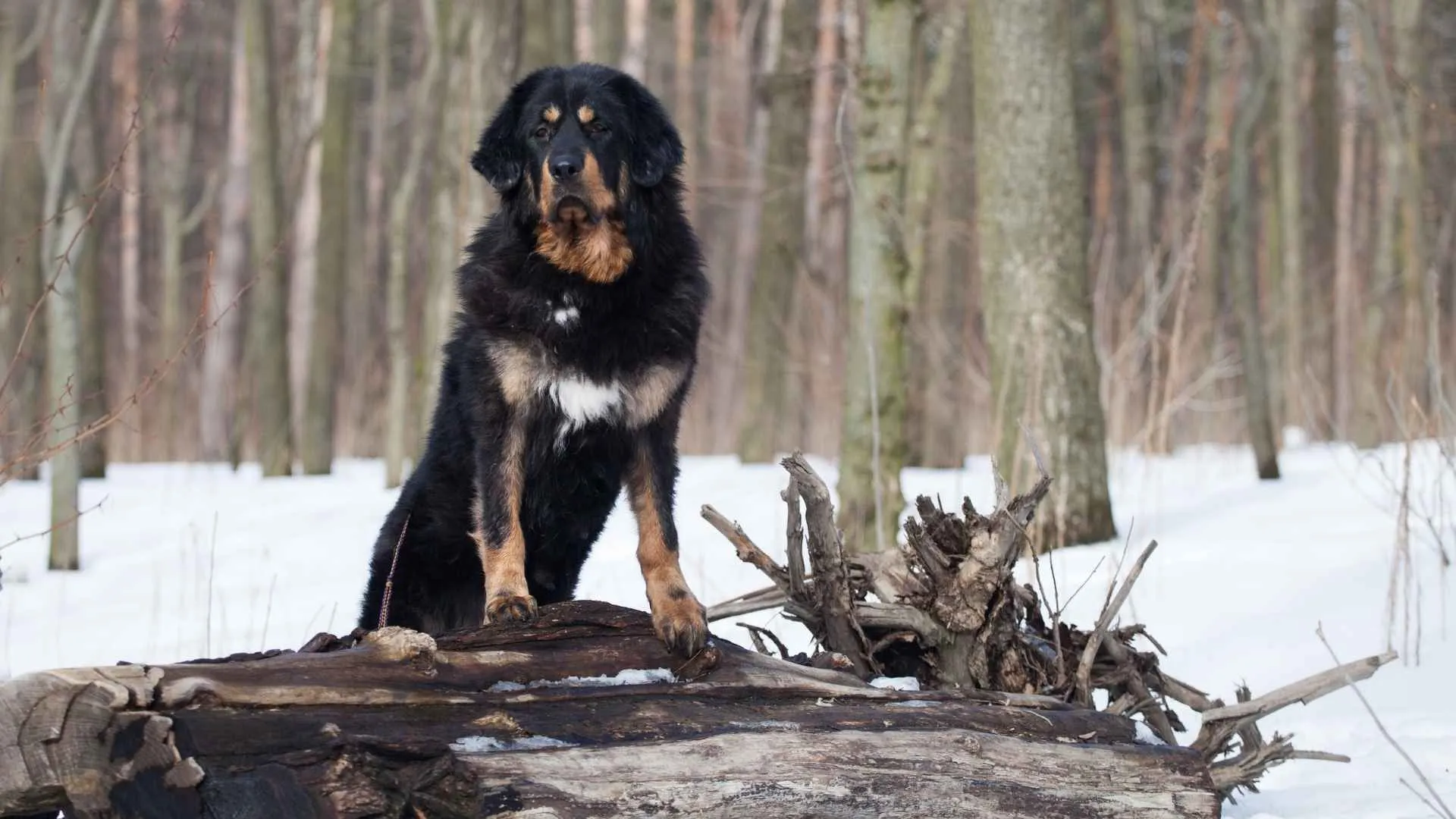
The Tibetan Mastiff is a legendary guardian breed that has been used for centuries to protect livestock and homes in the Himalayas. These massive dogs are independent thinkers with a deep-seated guarding instinct, making them a formidable choice for home protection. Their thick coats and lion-like manes give them an imposing, majestic presence.
Purina states that Tibetan Mastiffs have a strong-willed and independent nature. They are not suited for first-time dog owners, as they require firm leadership and an understanding of canine behavior. Patience and consistent training are essential for developing a respectful relationship with them.
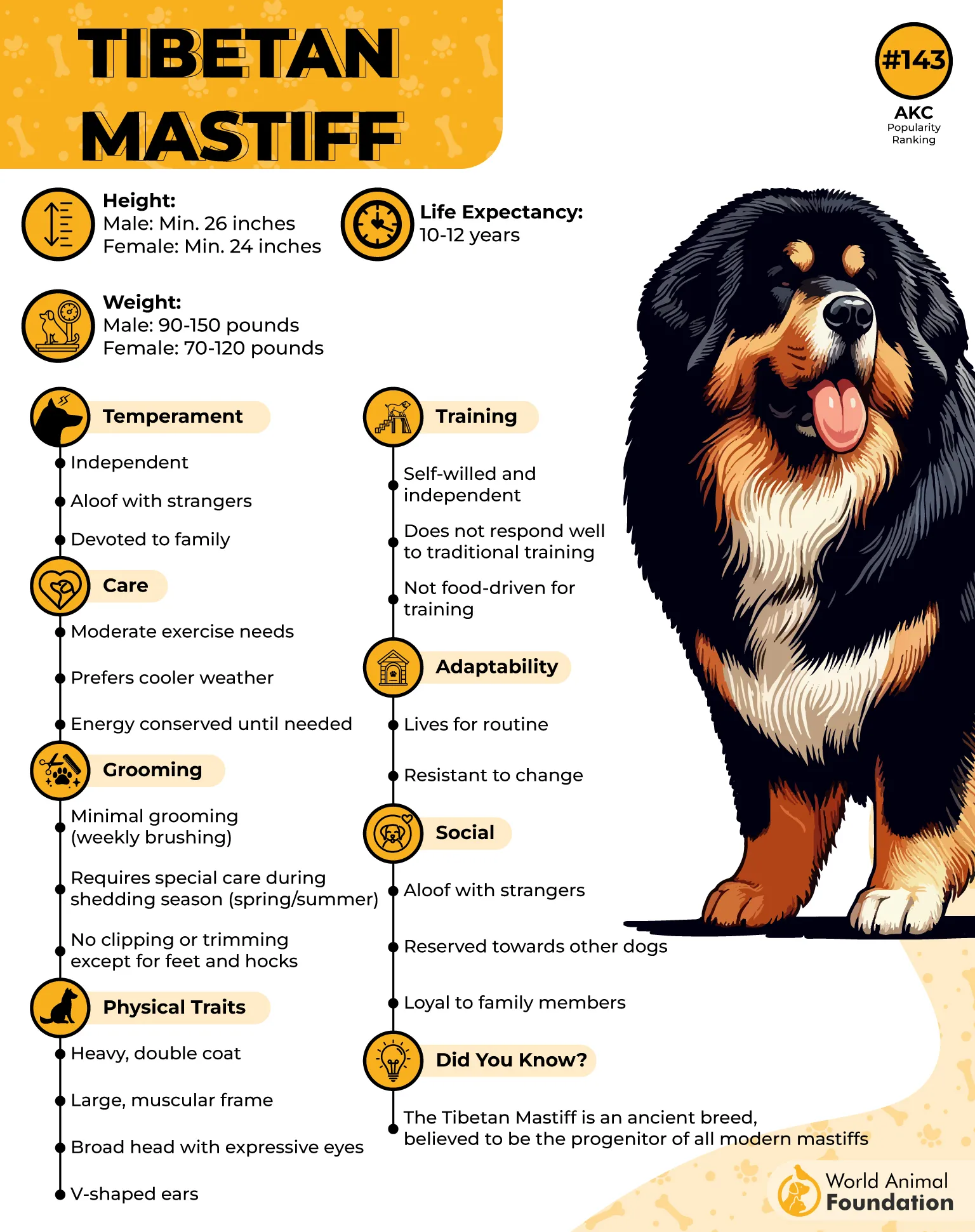
Their natural guarding instincts make them highly territorial. They do not require extensive protection training as they instinctively assess their surroundings and take action when necessary. However, socialization from an early age is crucial to prevent overprotective behavior.
Tibetan Mastiffs are nocturnal by nature, meaning they are more active and alert during the night. This trait makes them particularly effective at guarding properties, as they will remain vigilant while the household sleeps. Their deep bark serves as a strong deterrent against intruders.
Due to their thick double coat, grooming is more intensive than with short-haired breeds. Regular brushing is necessary to prevent matting, especially during shedding seasons. Additionally, their large size and slow metabolism mean they require a well-regulated diet to maintain a healthy weight and avoid joint issues.
Conclusion
Choosing the right natural guard dog for your home means finding a breed that balances protection with companionship. While some dogs are naturally watchful and protective, even the most loyal guard dogs need proper training to ensure they respond appropriately to different situations. With early socialization and consistent guidance, these breeds become not only reliable protectors but also loving additions to the family.
While the breeds mentioned excel in home security, they aren’t the only great options. Another example, the Staffordshire Bull Terrier, is a smaller but fearless protector known for its deep loyalty and strong bond with family members. Though they aren’t traditionally seen as guard dogs, their bravery and affection make them a fantastic choice for a protective yet family-friendly pet.
No matter which breed you choose, remember that successful guardianship isn’t just about instinct—it’s about training, socialization, and ensuring your dog coexists peacefully with other dogs and people while still keeping your home safe!


